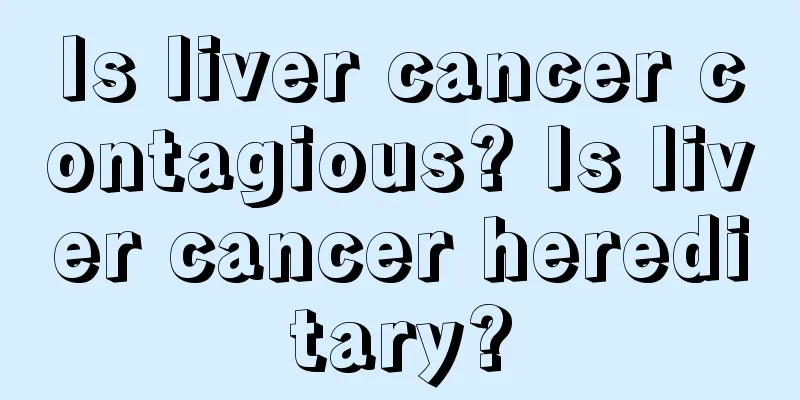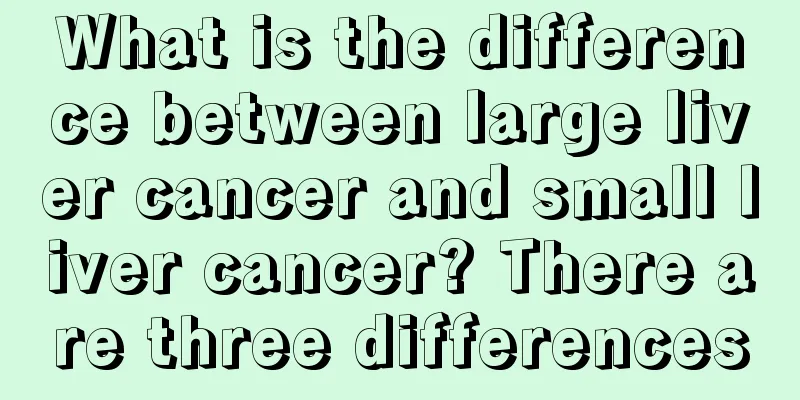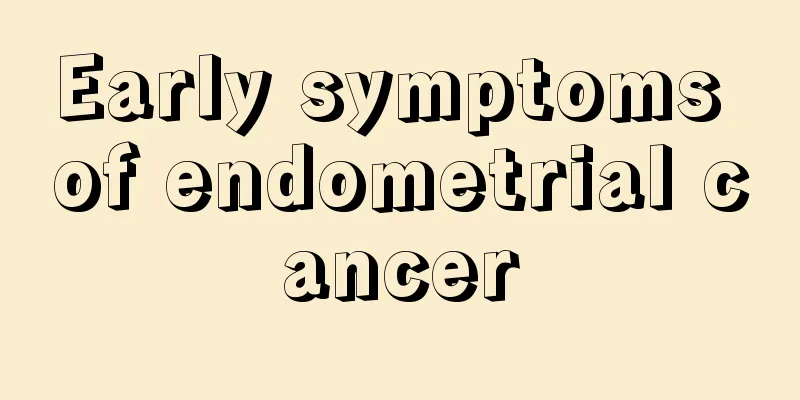Is liver cancer contagious? Is liver cancer hereditary?

|
Is liver cancer contagious? We all know that hepatitis is a contagious disease, so when it is discovered, it is necessary to seize the time for treatment. However, hepatitis and liver cancer are not the same thing. Many people are very concerned about whether liver cancer is contagious. So, let's learn about it together! Is liver cancer contagious? Is it hereditary? Liver cancer is not contagious, but its occurrence is closely related to infectious diseases such as hepatitis B and hepatitis C. According to statistics, more than 70% of primary liver cancer patients are infectious with hepatitis B. Therefore, strengthening the prevention and treatment of various types of hepatitis will undoubtedly play an effective role in curbing the occurrence of liver cancer. Although primary liver cancer is not contagious to others, its presence can cause great harm to patients both psychologically and physically, so it is necessary to choose the right treatment method to improve the patient's quality of life and prolong their survival. Currently, interventional treatment is a good choice. In interventional therapy, chemotherapy is mainly perfused through the tumor blood supply artery or transarterial chemoembolization. Interventional therapy mainly injects chemotherapy drugs directly into the tumor blood supply artery, which can significantly increase the drug concentration in the local tumor tissue, while significantly reducing the drug concentration in other parts, thereby improving the efficacy and reducing side effects. For the blood supply artery and tumor tissue of the tumor with rich blood supply, embolic agents can be used for embolization at the same time or separately, thereby enhancing the anti-tumor effect of chemotherapy drugs. Since drug perfusion is directly administered to tumor tissue through arteries, the drug dose is large, so the effect of tumor treatment will be better. Interventional treatment has very little overall harm to the patient, and the side effects and complications are also very small. In addition, vascular embolization therapy can inhibit the development of tumors and shrink them, thereby giving patients a chance for a second surgery. It is a physical therapy without toxic side effects. At present, interventional therapy has been widely used in various fields of tumor treatment and has played a significant therapeutic advantage. The scope of application of interventional therapy includes preoperative, postoperative, conventional and palliative chemotherapy of various solid tumors, and interventional therapy has been included in the scope of medical insurance, with a reimbursement rate of 70% to 80%. In addition, relatively conservative but more scientific and effective biological cell immunotherapy can also complement interventional therapy and be combined for treatment. DC-CIK biological cells, as a type of adoptive cell immunotherapy, extract the patient's own cells and culture them to enhance their immunity and cultivate their anti-cancer ability, thereby killing cancer cells. The combined treatment has shown its excellent efficacy in long-term clinical observations, bringing hope of life to countless cancer patients. |
<<: What are the symptoms of liver cancer? Does vertical lines on the nails mean liver cancer?
Recommend
How does breast cancer develop and what are the symptoms
How does breast cancer develop and what are the s...
What is missing if you often have nosebleeds
We all know that most nosebleeds are the result o...
Can endocrine drug treatment for prostate cancer patients be interrupted or stopped?
Generally, prostate cancer patients who need endo...
A detailed review of the diagnosis and treatment of hamartoma
Just hearing others say that hamartoma is difficu...
What causes dark circles?
Dark circles are a common problem nowadays. Dark ...
There are six ways to treat vomiting. How many do you know?
There are many factors that cause vomiting, such ...
Is it okay to apply lemon water on your face?
Lemons are for eating, but some people use lemons...
Doesn't smoking make you taller?
Height has a huge impact on a person's temper...
Is milk alkaline or acidic
We should drink milk often in our daily life, and...
What are the symptoms of pseudo-condyloma acuminatum?
Pseudo-condyloma acuminatum is also known as pseu...
What is the most effective way to treat gluteal muscle myofasciitis?
If gluteal muscle fasciitis is not effectively tr...
Deep sleep, this is how you understand it
Clinically, sleep is divided into light sleep and...
Why is mantle cell lymphoma easily misdiagnosed
Mantle cell lymphoma (MCL) is a type of lymphoma ...
What are the symptoms of liver cancer in women? Pay attention to these five points
What are the symptoms of liver cancer in women? A...
Early prevention of osteosarcoma
As the name suggests, osteosarcoma is a tumor gro...









